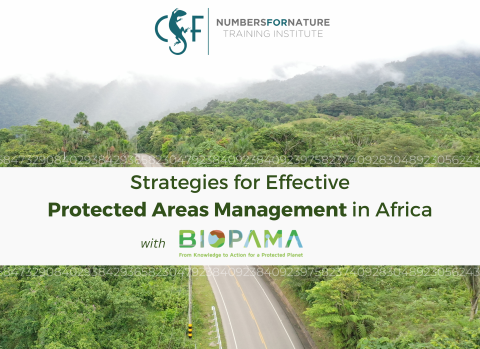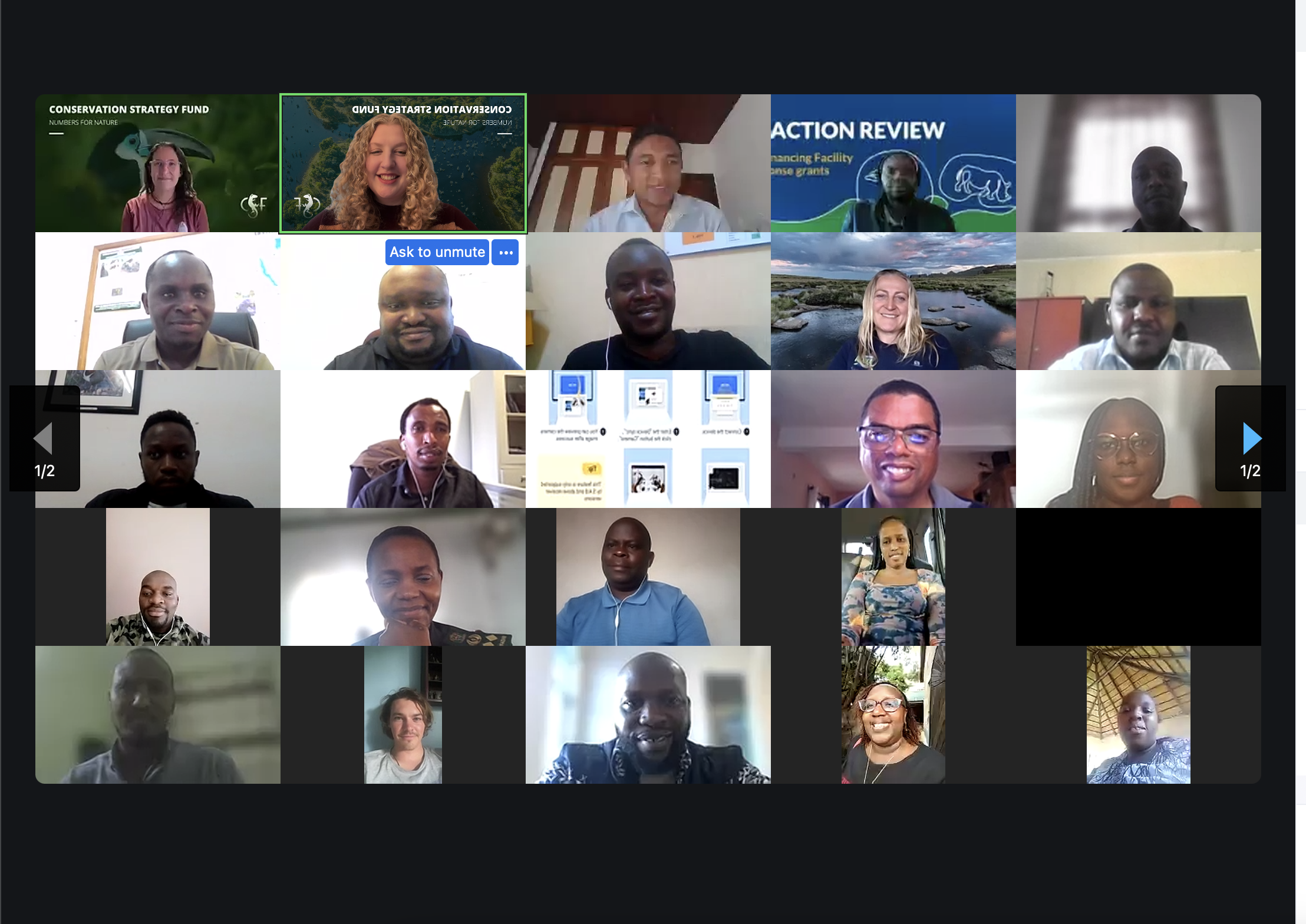
With the support of the European Union and the Organisation of African, Caribbean and Pacific States through the BIOPAMA Programme, Conservation Strategy Fund’s Numbers for Nature Training Institute (N4N) designed, developed, and implemented the online course Strategies for Effective Protected Areas Management in Africa from September 23-October 18, 2024.
This course welcomed 41 participants from 15 countries across the continent, including Kenya, Botswana, Madagascar, Eswatani, and more. Participants were drawn from BIOPAMA grantees and grantees benefiting from the SADC TFCA Financing Facility (TFCA FF). These participants represented 33 different organizations working with protected areas.
This virtual, 4-week course aligned with BIOPAMA’s vision of contributing and capacity development for protected areas management and governance. The course consisted of four modules, designed to provide participants with a solid theoretical foundation in economics and finance with a special emphasis on practical tools for financing protected areas and communicating their value to policy-makers and stakeholders.
Course Modules:
- Introduction to Environmental Economics
- Conservation Finance
- Cost-Benefit Analysis (CBA)
- Economic Valuation of Ecosystem Services
The CSF Numbers for Nature course staff and team of expert instructors implemented the course through a combination of pre-recorded lectures, exercises, experimental games, and regional case studies. 84% of participants who were evaluated at the beginning and end of the course showed measurable improvement in their economics and finance knowledge. On average, they rated the overall value and quality of the course as a 9.3 out of 10, and shared a 98% likelihood that they would recommend this course to a colleague.
With a solid foundation in market theory, natural resource management and conservation finance solutions, among other principles, our course participants can expand their scope of work, identify financing opportunities, better communicate the economic value of the services protected areas provide, and support the continued conservation of the natural environment.
“We need more of such courses to open our eyes on conservation matters.” - Elizabeth Atieno, Tsavo Trust, Kenya

The CSF Team would like to thank the European Union and the Organisation of African, Caribbean and Pacific States through the Biodiversity and Protected Area Management (BIOPAMA) Programme for their support of this course.
